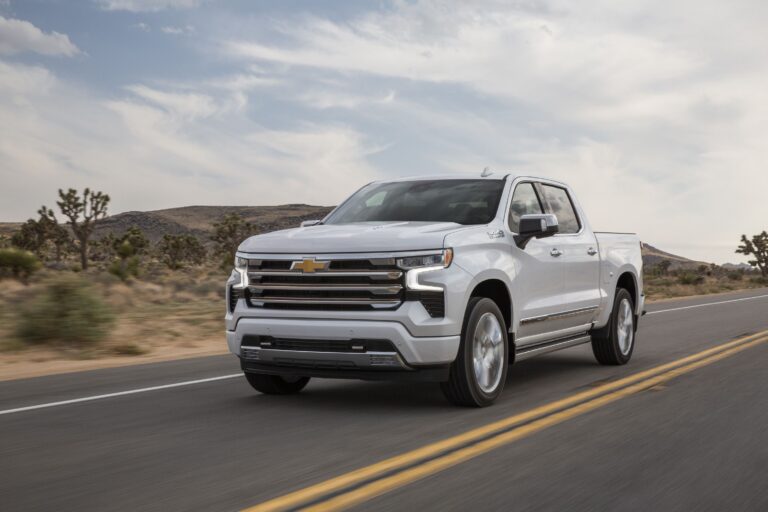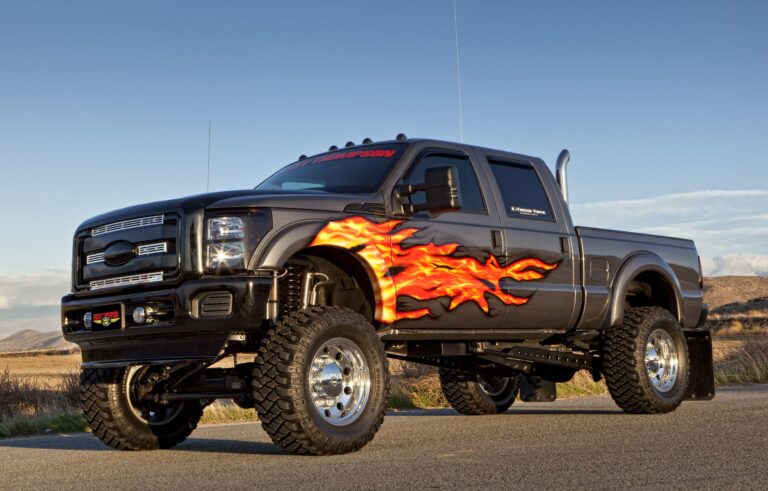Federal Trucks For Sale: Your Comprehensive Guide to Acquiring Government Surplus Vehicles
Federal Trucks For Sale: Your Comprehensive Guide to Acquiring Government Surplus Vehicles cars.truckstrend.com
The allure of a robust, well-maintained vehicle at a fraction of its market value is a powerful draw for individuals and businesses alike. When the term "Federal Trucks For Sale" comes up, it typically refers to a unique and often overlooked segment of the used vehicle market: surplus trucks previously owned and operated by various U.S. federal government agencies. These vehicles, ranging from common pickup trucks and cargo vans to specialized utility and heavy-duty equipment, are regularly retired from service and made available to the public.
Acquiring a federal surplus truck offers a compelling blend of potential cost savings, a wide variety of vehicle types, and the often-unseen benefit of a history of professional maintenance. However, navigating this niche market requires a clear understanding of the process, the benefits, and the inherent risks. This comprehensive guide will equip you with the knowledge needed to confidently explore the world of federal trucks for sale.
Federal Trucks For Sale: Your Comprehensive Guide to Acquiring Government Surplus Vehicles
Understanding Federal Surplus Trucks
Federal surplus trucks are vehicles that have completed their service life within various U.S. government departments and agencies. This includes a vast array of organizations such as the Department of Defense (DoD), the U.S. Forest Service, the U.S. Postal Service (USPS), the Department of Agriculture (USDA), and numerous others. These agencies regularly upgrade their fleets, dispose of vehicles no longer needed, or retire those that have reached the end of their operational lifespan.
Unlike vehicles sold by private individuals or dealerships, federal surplus trucks are liquidated through specific government channels, primarily online auctions. The condition of these vehicles can vary dramatically, from nearly new and lightly used to those requiring significant repairs, or even designated for salvage. They are always sold "as-is, where-is," meaning buyers assume all responsibility for the vehicle’s condition, transport, and any necessary repairs after the purchase. This "no warranty" policy is a cornerstone of government surplus sales.
The Benefits of Buying Federal Surplus Trucks
Despite the "as-is" caveat, purchasing a federal surplus truck can offer several distinct advantages:
- Cost-Effectiveness: This is often the primary motivator. Federal surplus vehicles are typically sold at prices significantly lower than comparable models on the private used car market or from dealerships. The savings can be substantial, especially for businesses or individuals with a limited budget.
- Diverse Inventory: The sheer variety of vehicles available is impressive. You can find everything from standard sedans and SUVs to 4×4 pickups, cargo vans, box trucks, utility trucks with specialized equipment, dump trucks, and even occasional heavy machinery. This diversity caters to a wide range of personal and commercial needs.
- Maintenance History (Often): Many federal agencies adhere to strict maintenance schedules for their fleets to ensure operational readiness and safety. While not always guaranteed or fully disclosed, there’s a higher likelihood of finding a vehicle with a consistent service history compared to a privately sold vehicle.
- Durability and Reliability: Vehicles used by federal agencies are often built to withstand demanding conditions and are generally designed for utility and longevity rather than luxury. They are often robust models from reputable manufacturers, chosen for their reliability in various operational environments.
- Unique Opportunities: For collectors or those seeking specific, hard-to-find specialized vehicles (e.g., certain utility body configurations, high-clearance vehicles, or specific heavy-duty trucks), federal auctions can present unique opportunities not found elsewhere.

Navigating the Acquisition Process: Where and How to Buy

The vast majority of federal surplus trucks are sold through GSA Auctions, managed by the U.S. General Services Administration. This is the official online platform for the disposal of federal assets.
GSA Auctions: Your Primary Channel
- Registration: The first step is to register for a free account on GSAAuctions.gov. This requires providing basic personal or business information and agreeing to their terms and conditions.
- Searching for Vehicles: Use the website’s search filters to narrow down listings by vehicle type (trucks, vans, SUVs), location, mileage, make, model, and current bid status. You can often filter by "Government Owned" or "Federal" to ensure you’re looking at true federal surplus.
- Thorough Inspection: This is the most critical step. GSA provides basic descriptions and photos, but these are often insufficient. Always try to inspect the vehicle in person if at all possible. Bring a mechanic or someone knowledgeable about vehicles. Check for rust, fluid leaks, engine noises, transmission issues, tire wear, and the overall condition of the interior and exterior. If an in-person inspection isn’t feasible, exercise extreme caution and assume the worst-case scenario. Remember, you cannot test drive.
- Bidding: Once you’ve identified a vehicle and are comfortable with its condition (or the risks), you can place your bid. GSA Auctions typically use a proxy bidding system, where you set your maximum bid, and the system bids on your behalf up to that amount.
- Payment and Pickup: If you win an auction, you’ll receive notification and instructions for payment. Payment deadlines are strict, usually within 2-3 business days. Accepted payment methods typically include credit card (up to certain limits), wire transfer, or certified check. After payment, you’ll receive instructions for picking up the vehicle. Pickup windows are also strict, usually within 5-10 business days. Failure to adhere to these deadlines can result in penalties, including forfeiture of the vehicle and being banned from future auctions.
Other Potential Channels
While GSA Auctions is dominant, some specialized federal agencies might have their own disposal programs, or vehicles may filter down to state or local government surplus auctions. However, GSAAuctions.gov remains the most comprehensive and reliable source for the general public.
Key Considerations Before You Bid
Buying a federal surplus truck is not without its unique challenges. Careful planning and realistic expectations are essential:
- "As-Is, Where-Is": Reiterate this. No warranties, no guarantees. What you see (or don’t see) is what you get. Budget for potential repairs immediately after purchase.
- Location and Logistics: Federal vehicles are located at various government facilities across the country, often in remote areas. Factor in the cost and logistics of travel, transport, and potential towing if the vehicle isn’t roadworthy.
- Documentation: Ensure you understand the documentation you’ll receive. Typically, you’ll get an SF-97 (Certificate of Release of a Motor Vehicle), which acts as a federal title and can be used to obtain a state title and registration. Verify your state’s specific requirements for titling vehicles with an SF-97.
- Vehicle History Reports: Services like CARFAX or AutoCheck may have limited information for government vehicles, as they are not typically reported in the same way as privately owned vehicles. Your best bet is a thorough physical inspection.
- Specialized Equipment: Some federal trucks may come with agency-specific equipment (e.g., light bars, communication radios, specialized toolboxes, safety cages) that may need to be removed or modified to comply with state laws or for personal use. Ensure you understand what is included and what might need to be done.
- Emissions and Safety Standards: Confirm the vehicle meets your state’s emission standards and safety inspection requirements, especially for older or specialized models.
- Hidden Costs: Beyond the bid price, account for buyer’s premiums (a percentage added to the winning bid), sales tax, registration fees, transportation, and potential immediate repairs.
Types of Federal Trucks and Their Common Uses
The types of federal trucks available reflect the diverse needs of government agencies:
- Light-Duty Pickups (e.g., Ford F-150, Chevy Silverado 1500, Ram 1500): Ubiquitous for general transport, administrative tasks, and light hauling across almost all agencies. Ideal for personal use, small businesses, or farm work.
- Light-Duty Vans (e.g., Ford Transit Connect, Chevy Express, Dodge Grand Caravan): Used for cargo, passenger transport, or specialized service vehicles. Perfect for delivery, tradespeople, or converting into work/camping vans.
- Medium-Duty Trucks (e.g., Ford F-250/350/450/550, Chevy Silverado 2500/3500, Ram 2500/3500): Often equipped with utility bodies, dump beds, or flatbeds. Common for USDA, Forest Service, and public works. Suited for construction, landscaping, heavy towing, or agricultural use.
- Heavy-Duty Trucks (e.g., Ford F-650/750, International, Freightliner): Less common but include larger dump trucks, tractor units, fire trucks, or specialized equipment carriers. Generally require commercial driver’s licenses and are best for specific industrial or commercial applications.
- Specialized Vehicles: Occasionally, unique vehicles like ambulances, airport support vehicles, or military non-tactical vehicles (e.g., Humvees, large cargo trucks) appear. These are typically for highly specialized needs or enthusiasts.
- Postal Long-Life Vehicles (LLVs): The iconic mail delivery trucks. Often high mileage, but known for their durability and specific design for city driving.
Practical Advice and Actionable Insights
- Start Small: If you’re new to government auctions, consider bidding on a lower-value item first to familiarize yourself with the process before investing in a significant vehicle.
- Set a Firm Budget: Determine your absolute maximum bid, including all associated costs, and stick to it. Auction fever can lead to overspending.
- Be Patient: The inventory on GSA Auctions changes constantly. If you don’t find what you need immediately, keep checking back. Good deals appear regularly.
- Research Thoroughly: Beyond the GSA listing, research common issues for the specific make/model/year you’re considering.
- Don’t Be Afraid to Walk Away: If an inspection reveals major issues, or if the bidding goes beyond your comfort level, be prepared to step back. There will always be other opportunities.
Federal Trucks For Sale: Illustrative Price Table
Prices for federal surplus trucks vary wildly based on condition, mileage, age, type, location, and current demand. The table below provides a general illustrative range based on typical GSA auction outcomes and should not be considered definitive. Actual prices can be significantly higher or lower.
| Vehicle Type | Year Range (Approx.) | Condition (Avg.) | Mileage (Avg.) | Estimated Price Range (USD) | Common Agencies |
|---|---|---|---|---|---|
| Light-Duty Pickup (4×2) | 2008-2015 | Fair-Good | 100k-180k | $3,000 – $8,000 | USDA, USPS, GSA |
| Light-Duty Pickup (4×4) | 2010-2018 | Good | 80k-150k | $5,000 – $12,000 | Forest Svc, DoD |
| Cargo Van (Full-size) | 2009-2016 | Fair-Good | 120k-200k | $2,500 – $7,000 | USPS, GSA, VA |
| SUV (Mid-size) | 2010-2017 | Good | 90k-160k | $4,000 – $10,000 | DoD, DEA |
| Medium-Duty Utility Truck | 2007-2014 | Fair-Good | 150k-250k | $6,000 – $15,000 | USDA, Forest Svc |
| Dump Truck (Single Axle) | 2005-2012 | Fair | 180k-300k | $8,000 – $20,000 | Public Works |
| USPS LLV (Mail Truck) | 1987-1994 | Poor-Fair | 250k+ | $500 – $3,000 | USPS |
| Heavy-Duty Flatbed | 2000-2010 | Fair | 200k+ | $10,000 – $25,000 | DoD, USDA |
Note: These ranges are highly speculative. Actual auction results vary significantly based on specific vehicle condition, maintenance history, features, and demand. Always conduct your own research.
Conclusion
The market for federal trucks for sale presents a compelling opportunity for those seeking durable, often well-maintained vehicles at competitive prices. Whether you’re a small business owner looking for an affordable workhorse, a contractor in need of specialized equipment, or an individual seeking a robust personal vehicle, the federal surplus system can be a rewarding avenue. However, success hinges on thorough research, diligent inspection, and a clear understanding of the "as-is" nature of these transactions. By approaching the process with informed caution and realistic expectations, you can unlock significant value and drive away with a piece of federal history that serves your needs for years to come.
Frequently Asked Questions (FAQ)
Q1: Is a warranty included with federal surplus trucks?
A: No. All federal surplus vehicles are sold "as-is, where-is" with no warranties, expressed or implied. Buyers are responsible for inspecting the vehicle and accepting all risks.
Q2: Can I test drive a federal surplus truck before bidding?
A: Generally, no. Most GSA auction sites allow for static inspection only. You can start the engine, check lights, etc., but actual driving is typically prohibited due to liability and logistical reasons.
Q3: What kind of title do I receive for a federal surplus vehicle?
A: You will typically receive an SF-97 (Certificate of Release of a Motor Vehicle). This is a federal document that you will use to obtain a state title and register the vehicle in your state of residence. Ensure your state’s DMV accepts the SF-97.
Q4: Are federal vehicles well-maintained?
A: Many federal agencies follow strict maintenance schedules, leading to a higher probability of a well-maintained vehicle. However, this is not guaranteed, and mileage can be very high. Always verify condition during inspection.
Q5: Can I get financing for a federal surplus truck?
A: It can be challenging. Many traditional lenders are hesitant to finance "as-is" vehicles from auctions, especially older models. Cash payment is often the most straightforward option. Some specialized lenders or personal loans may be viable.
Q6: Are all federal trucks diesel?
A: No. While many medium and heavy-duty federal trucks are diesel, a large number of light-duty pickups, vans, and SUVs are gasoline-powered.
Q7: What about military vehicles?
A: Non-tactical military vehicles (e.g., pickups, cargo vans, sedans) are commonly sold through GSA Auctions. Tactical military vehicles (e.g., tanks, armored personnel carriers) are usually demilitarized before sale or sold through specialized programs, often not to the general public in their original configuration.





